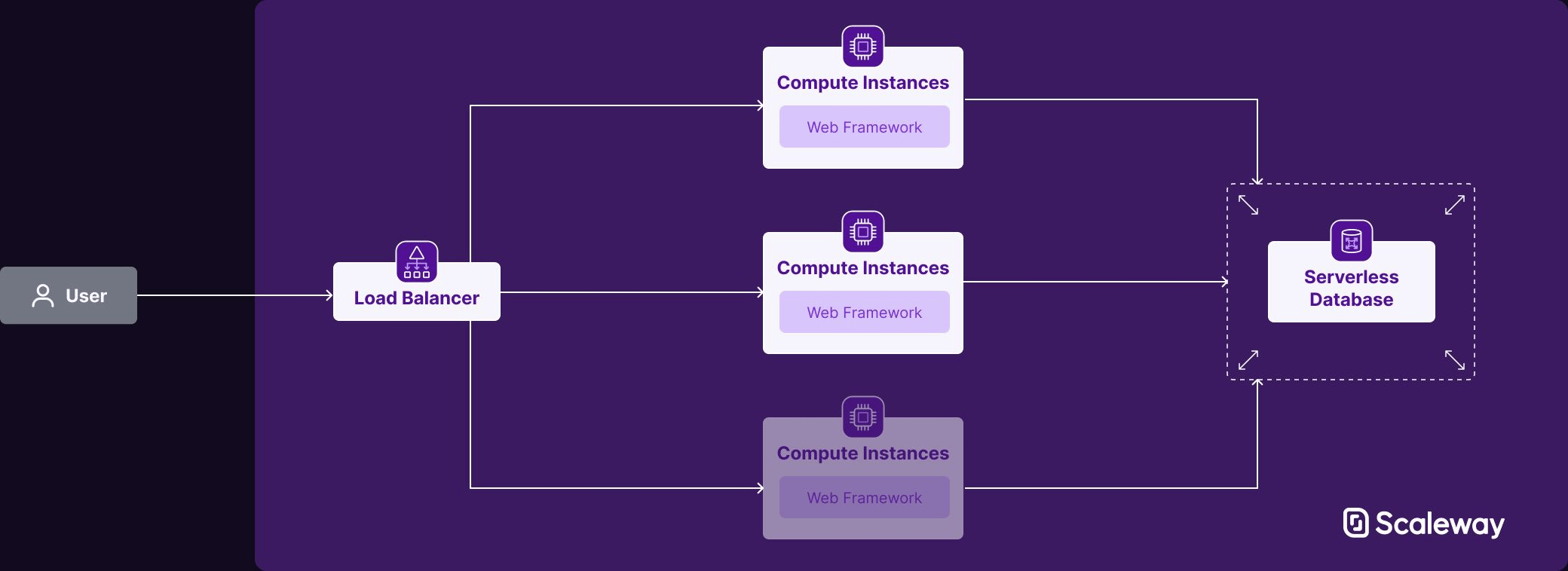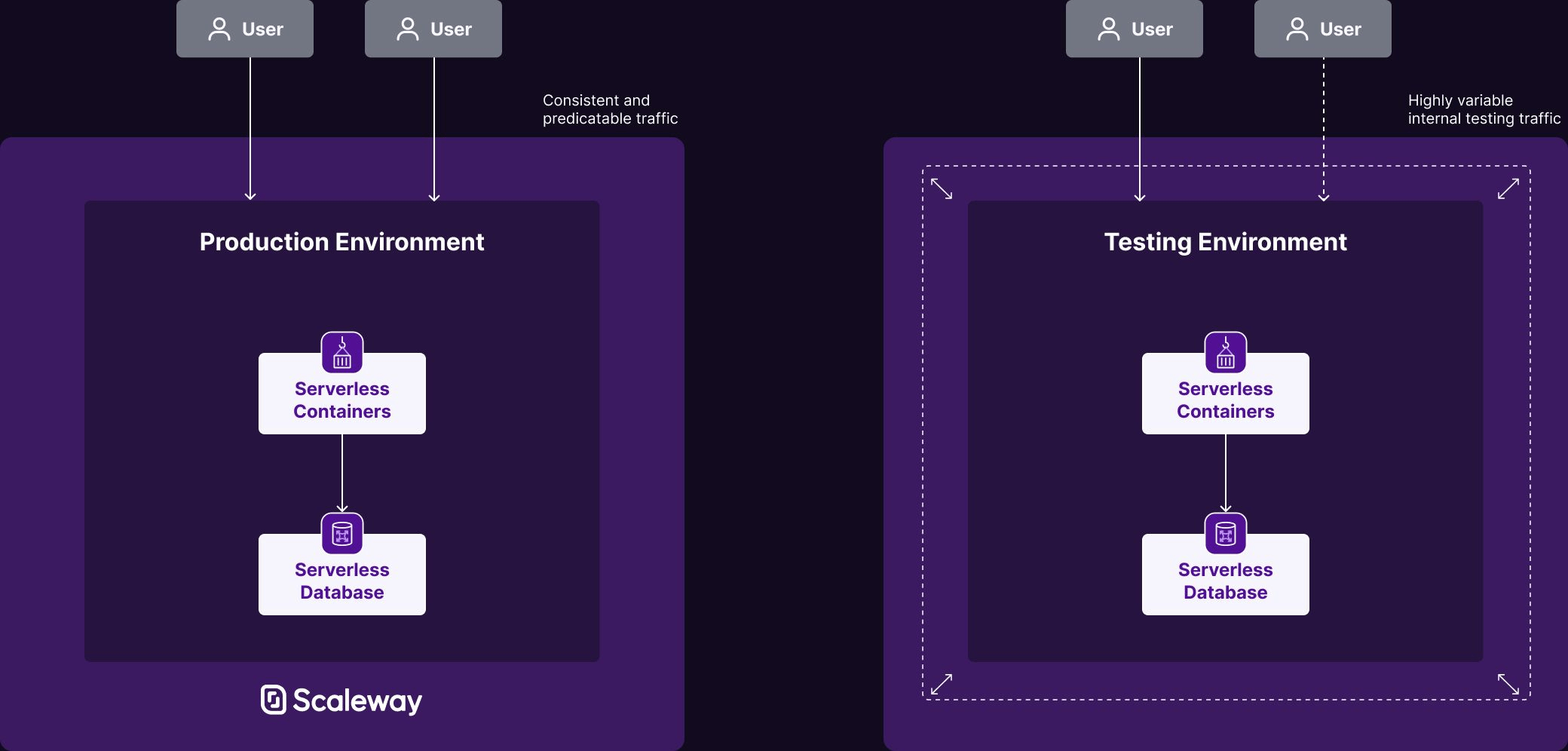
What is a Serverless database?
Discover what Serverless SQL databases are, how they reduce database costs, and why they’re essential for modern businesses.
Go full serverless and take the complexity out of PostgreSQL database operations.


With Serverless SQL Database, we don't have to worry about how the database is going to work, either in terms of load or size. It's very simple, and we never asked ourselves whether it would work better on a managed database.
Eduardo Queiroz, CTO & co-founder at Matcha

Unexpected changes in your workloads happen, but they shouldn't impact your database's performance - nor should it alter your customers' experience.

Teams spend more time managing databases' sizes and bottlenecks, or fearing to reach maximum capacity that would cause service disruption - instead of data collection and analysis.

Ultimately, your database is costing you more than it should - including in overhead.

Our database automatically scales up or down, all the way to zero, adapting to fluctuations in your workloads - without impacting performance or disrupting the user experience.

No more hidden fees: only pay for what you store and consume, reducing operational overhead and database costs.

Your data is automatically and regularly backed up in Europe, preventing data loss and increasing the reliability of the service you provide.
Focus on your application features without over-provisioning database capacity for peak usage.

Create temporary environments once, and have them running only when you query them.

Run your database only when required, such as during batch or data pipeline operations.


We scale your database up and down to zero, both in storage and compute, based on your workloads, so that your applications keep on running, even with multiple concurrent users.

Only pay for the vCPU you use and the GB you store. You can also define minimum and maximum scalability thresholds for better cost control.

We use a language your developers are already familiar with, ensuring at the same time compatibility with your PostgreSQL-based applications.

We provide high availability by design and ensure your data is automatically backed up regularly on a different Availability Zone.

We ensure compatibility with Serverless Functions and Containers, so that thousands of functions can connect concurrently to your database.

We handle the set-up, configuration, patching, and performance optimization of your database so that your teams can spend more time on building, and less on infrastructure management.
Our technical assistance is available 24/7 to answer all your questions and assist you.
We offer a new experience with API access, Linux distributions, an intuitive console, and Terraform.
Our user interface was created with developers in mind. To give you the best & fun experience managing your cloud projects.
Our cloud products are designed & built to work together, offering you a seamless, world-class cloud experience.

What is a Serverless database?
Discover what Serverless SQL databases are, how they reduce database costs, and why they’re essential for modern businesses.

Managed vs. Serverless
Choose the right solution to maximize flexibility and minimize costs.
Serverless SQL Database aims for full compatibility with PostgreSQL connections (minor differences regarding advanced PostgreSQL features can be found here). You can access the database using your preferred PostgreSQL client or language drivers through, credentials or connection string login.
Serverless SQL Database can be configured to accept specific IP ranges only, using Scaleway IAM Policies. The possibility to restrict access to your Scaleway private network is on the roadmap.
You can define minimum and maximum scalability thresholds, allowing you to stay within budget even in the event of connection peaks or highly demanding requests.
Your exact workload and provisioned capacity over time are available directly in Cockpit dashboards.
The database automatically wakes up within seconds from its idle state when it receives new queries. You don't need to modify your API or connection timeout durations in your code to handle these cases, and your end users won't experience any lag either.
You can use our Serverless SQL Database as a database for any tool compatible with PostgreSQL (such as Next.js, Strapi, or most web application framework). Specific tools such as ETL (Extract Transform Load) may be partially compatible if they use advanced PostgreSQL features which are listed here.
You may need to use Terraform or perform manual creations from the Console (e.g., scripts using SQL instructions such as "CREATE DATABASE" may not work) if you need to set up multiple databases automatically (depending on the setup instructions).
Serverless SQL Database supports more than 30 PostgreSQL extensions such as pgvector, TimescaleDB or PostGIS.
The database size is currently limited at 100 GB; an upgrade to 1 TB is planned for later this year.
Yes, billing starts at 1 GB of data (~0.10 €/month), even if the database is empty.
You can find the SLA for this product here.